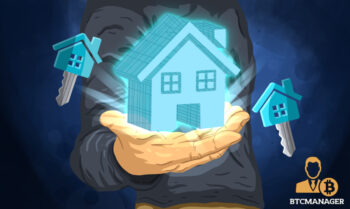2019-9-4 11:45 |
Coinspeaker
The Blockchain Effect on the Real Estate Industry
It seems that all one has to do these days to see something about blockchain technology is go online. Nearly every major news portal and tech website has had a number of features on the current darling technology. The code supporting Bitcoin, blockchain technology has been suggested as a solution in every industry from banking to dentistry.
However, while many have suggested blockchain can revolutionize every industry, some lend themselves more simply to disruption. For example, anything that can be transacted digitally allows for easy conversion into blockchain solutions.
Tokenizing the World?One such area for disruption is anything that can be tokenized. When an asset can be converted into tokens, those tokens then offer a veritable ‘stock market’ solution for transferring that asset to a larger owner base.
This tokenized model is made possible through platforms like CPI Tech and others, that use blockchain to issue ‘tokens’ of a particular asset. The technology is very similar to Bitcoin, in that the tokens are issued on the blockchain and are immutable. Such tokens can then be sold, held digitally, or transferred interpersonally without change to the value of each token.
However, unlike Bitcoin, the underlying basis for the value of each token is based on the overall value of the tokenized asset. Each token then functions as a sort of ‘stock’, with value being given to the owner, and dividends made possible by token value increase. Such a solution is possible for anything that can be classified as an asset with a value that can be easily divided.
Divided HouseOne such example is found in the world of real estate. A house is, of course, a real asset, that can be transferred physically only. However, the occupancy of a house or a rental property is based on time – this allows it to be tokenized.
Consider, for example, the potential for tokenization of a rental property’s use. Because the property is simply being rented, the time of rent can be distributed via a tokenization system, allowing the landlord to sell ‘shares’ of rental income.
While the landlord would retain the title to the property, the income from the property could be distributed over a wide investor base. Such a system would allow for a B2B platform, encouraging investors to participate in the profitability of a particular asset.
As the value of the rental income of the property for a year increased, the landlord could simply increase the value of each token. Owners would then be participating in the returns that the rental income made without the massive upfront investment cost, or the necessity of maintenance – a major hurdle for many would-be investors.
What’s more, the landlord would also be a huge winner in such a solution. While he would be giving up some of the value of the rental income for the year, the token would be sold to potential investors. In this way, the landlord could rapidly recoup some of the initial investment cost in purchasing or financing the property.
Additionally, the landlord could keep some of the tokens at the beginning offering, effectively tying up the value of the rent for a portion of the year. This is exactly what Satoshi Nakamoto did with the first 1 million Bitcoins ever created (which, by the way, puts the elusive founder on the Forbes richest 100 list!).
Tokenization TechThe hiccup, of course, is the technological know-how of creating such a system. However, with platforms like CPI Tech, this process of tokenization and the technology that makes it possible are already in place.
Landlords and asset holders would simply need to utilize the blockchain feature that CPI offers. This would allow them to generate a cryptocurrency token that could then be marketed and sold. And, to make matters easier, CPI also provides training and resources for getting the word out about the token that is being offered.
Taken together, these systems allow for a new, disrupting technological change in the marketplace. With tokenization abilities, landlords and businesses can change the way investors buy into real estate value, and allow for the proliferation of real estate investments.
The Blockchain Effect on the Real Estate Industry
Similar to Notcoin - Blum - Airdrops In 2024
REAL (REAL) на Currencies.ru
|
|
















